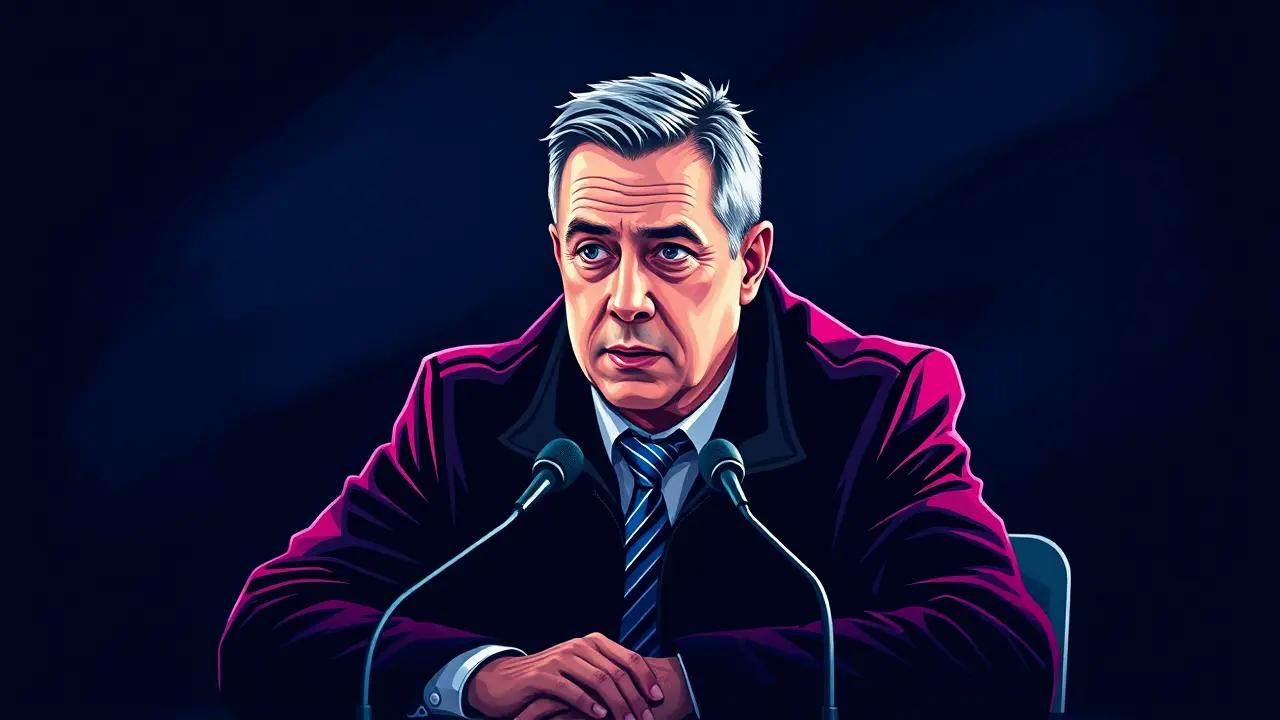Guy Boucher on Controversial Elbow Incident and Player Injuries
The raw, unfiltered tension of playoff hockey was on full display, and Guy Boucher, the seasoned general of Avangard Omsk, was holding court in a post-game presser that felt more like a tactical debrief after a hard-fought battle. The central point of contention, the flashpoint that ignited his visible frustration, wasn't a disallowed goal on the scoresheet but a moment of pure, unadulterated physical danger—a vicious elbow to the head of one of his key players.'We weren't arguing about the goal,' Boucher clarified, his tone a mix of exasperation and cold fury, 'it was about an extremely dangerous play, an elbow to our player's head. You never want to see your athlete sidelined long-term with a concussion.These are the kinds of moments we need to eliminate from hockey. ' The sheer disbelief was palpable in his voice; he couldn't fathom how the officials could witness what he saw as a blatant, game-misconduct-level infraction and not deem it worthy of a penalty.'Perhaps the referee saw it from a different angle,' he conceded, though the concession did little to mask his conviction. 'But from where I stood, it was a direct, forceful blow to the head.That's why I reacted the way I did. ' This incident opens up the perennial, heated debate surrounding player safety in the Kontinental Hockey League, a conversation that often pits old-school 'tough hockey' mentality against the modern, data-driven understanding of head trauma.We've seen this story before, from the NHL's slow reckoning with concussions to the KHL's own evolving standards. A single, unpenalized elbow can have cascading consequences, not just for the player's immediate health but for the entire team's championship aspirations, a risk no coach, especially one as strategically meticulous as Boucher, is willing to take lightly.Shifting focus to the broader game, the question of Avangard's unusually high number of penalties was met with a characteristically blunt, almost philosophical response from the coach. 'Well, that's just the way it is,' he stated, a simple acknowledgment of a statistical reality that can often derail even the most well-laid game plans.'Yes, a lot of penalties. It is what it is.' This 'is what it is' mentality, however, belies the strategic nightmare that constant penalty-killing creates, draining energy from key offensive players and disrupting the all-important flow and rhythm of a team's lines. The injury report from the night only added to the gloom, painting a picture of a squad being tested by the grueling physical demands of the season.When asked about the status of center Nikolai Prokhorkin, Boucher's response was concerningly vague, a coach grappling with the immediate fallout of a brutal contest. 'I don't know,' he admitted.'We lost two centermen in this game. We haven't figured out the exact nature of the issues yet.We'll be consulting with the medical team. ' The loss of two pivots is a catastrophic blow to any team's structure, crippling face-off percentages and disrupting defensive zone coverage.Further compounding the long-term absentee list is the slow recovery of veteran forward Nail Yakupov. 'He's recovering slowly from his operation,' Boucher noted, the hope in his voice tempered by a dose of pragmatic caution.'We're hoping he'll be back in a few weeks. But it's a significant loss for us.We won't rush him; he needs to be one hundred percent healthy. ' In a league where depth is paramount, the absence of a player of Yakupov's caliber forces younger, less experienced players into elevated roles, a high-risk, high-reward scenario that can define a team's season.Yet, amidst the controversy and the casualty list, one strategic pillar of Boucher's Avangard remained unshaken: an offensive philosophy built on volume. The staggering statistic of 91 shots on goal wasn't an anomaly but a deliberate, ingrained part of the team's DNA.'This is our path, our mentality—to shoot a lot,' Boucher explained, his voice regaining some of its characteristic strategic certainty. 'We generate a high volume of shots every single game.It was the same in our previous match. ' This approach is reminiscent of analytics-driven models in modern football and basketball, where overwhelming the opponent with repeated attempts, rather than waiting for the perfect opportunity, is seen as a statistically sound path to victory.However, Boucher was quick to offer a crucial, self-critical nuance, tipping his hat to the opposing goaltender while dissecting his own team's execution. 'Yes, the opponent's goalie played exceptionally well,' he acknowledged, giving credit where it was due.'But many of our shots, while numerous, weren't of the highest quality. They weren't what we're looking for.We didn't do enough to secure the win, and the opponent did more and deserved the victory. ' This final analysis from the Avangard head coach was a masterclass in balanced post-game assessment—fierce in defending his players' safety, frustrated by disciplinary lapses, concerned about mounting injuries, steadfast in his tactical identity, yet brutally honest about his team's shortcomings in a crucial matchup. It was a portrait of a leader navigating the complex, often brutal, ecosystem of professional hockey, where a single point in the standings can be the difference between glory and an early summer, and where the health of a player is a currency more valuable than any trophy.
It’s quiet here...Start the conversation by leaving the first comment.
